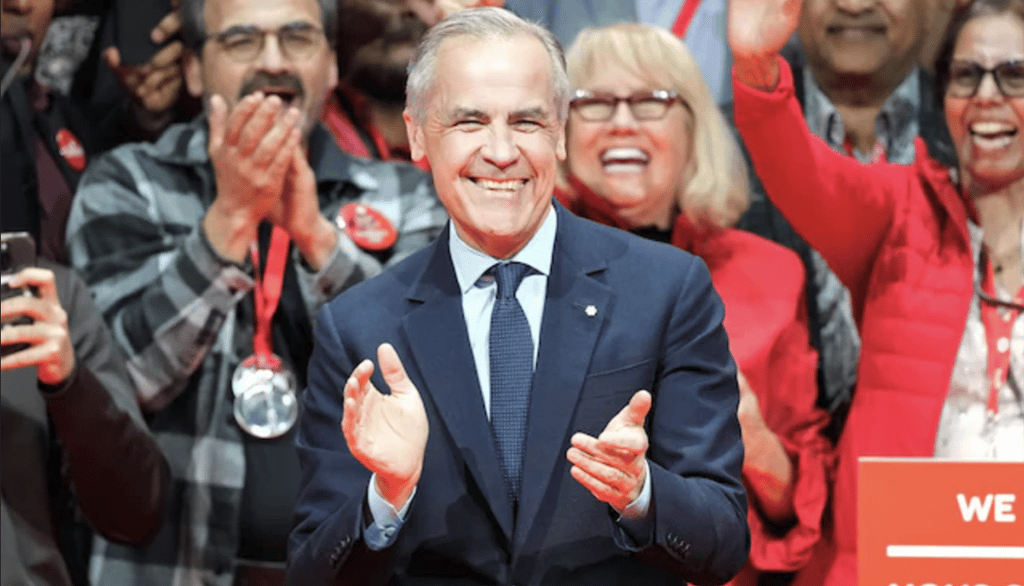Mark Carney’s Win: A Victory for Some, a Letdown for Others in Canada’s 2025 Election
4/29/20253 min read


Mark Carney’s Win: A Victory for Some, a Letdown for Others in Canada’s 2025 Election
A Stunning Comeback with Mixed Reactions
On April 29, 2025, Mark Carney’s Liberal Party pulled off a jaw-dropping upset in Canada’s federal election, securing a fourth term against all odds. Once trailing the Conservatives by over 20 points, Carney’s win was fueled by a backlash against Donald Trump’s tariffs and provocative rhetoric toward Canada. While many celebrated the result as a stand against U.S. interference, others remain skeptical—or outright disappointed. Let’s break down the pros and cons of Carney’s victory, what Canadians expected, and why some are still unsatisfied.
The Pros: Stability and Global Clout
Carney’s win brings a sense of economic stability to a nation rattled by Trump’s 25% tariffs on Canadian exports and 10% on energy products, imposed in March 2025. As a former governor of the Bank of Canada and the Bank of England, Carney has a proven track record of managing crises. During a leadership debate, he emphasized his experience, saying, “I know how to manage crises. You need negotiating skills.” This resonates with older voters over 49, who backed the Liberals in droves, according to a CTV News survey, valuing his ability to navigate the looming trade war with the U.S.
Globally, Carney’s reputation opens doors. UK Prime Minister Keir Starmer and Japanese Prime Minister Shigeru Ishiba congratulated him, signaling potential for stronger EU and Asian alliances to counterbalance U.S. pressure. At home, his promise of middle-class tax cuts and a “buy Canadian” strategy has won over those worried about economic fallout from Trump’s policies. For many, Carney represents a steady hand to protect Canada’s sovereignty—a sentiment echoed on X, where @CanadianKobzar cheered, “NOT IN OUR COUNTRY DAMNIT!”
The Cons: Inexperience and Generational Divide
Despite his economic credentials, Carney has never held political office, and that inexperience worries some. Critics like Erica Ifill in The Guardian point out that while Carney has gravitas, he’s light on solutions for social issues like Indigenous rights and racial equity. His cabinet, reportedly smaller than Justin Trudeau’s at under 30 members, may struggle to address Canada’s complex challenges. Moreover, his campaign focused heavily on older voters, alienating younger Canadians who leaned toward the Conservatives. This generational divide is stark: younger voters, grappling with housing affordability and inflation, feel sidelined by Carney’s emphasis on protecting assets like homes and investments, which many of them don’t have.
What Canadians Expected from Carney
When Carney replaced Trudeau, expectations were high. Canadians hoped for a fresh start after Trudeau’s decade-long tenure, which ended with a 20% approval rating amid internal party strife. With his global financial background, many expected Carney to be a pragmatic leader who could stand up to Trump while addressing domestic woes. His victory speech set a bold tone: “Canadians will need to do things previously thought impossible at speeds we haven’t seen in generations.” Voters interpreted this as a promise of innovation—new trade deals, economic resilience, and a renewed focus on unity.
Why the Disappointment?
Despite the win, not everyone’s celebrating. Younger Canadians, who favored Pierre Poilievre’s Conservatives, feel Carney’s vision doesn’t address their immediate struggles. On X, @FlyDaW16 sarcastically remarked, “Look at the Canadians celebrating the downfall of their own country, congrats y'all deserve it.” Others, like @Ankush Sharma, accused Liberals of making the election about Trump rather than domestic issues. Poilievre’s campaign had exposed Liberal vulnerabilities, and his concession speech hinted at a party ready to regroup, leaving some to wonder if Carney’s win is a temporary reprieve rather than a long-term solution.
If Carney secures only a minority government—still uncertain as ballots are counted—he’ll face pressure to compromise with rivals, potentially diluting his agenda. For those who wanted a complete break from the Liberal establishment, Carney’s “anti-Trudeau Liberal” pivot feels like more of the same, just with a new face.
What’s Next for Canada?
Carney’s leadership will be tested immediately. Can he deliver on his promises while bridging Canada’s generational and social divides? His win may have been a rejection of Trump, but governing will require more than anti-U.S. sentiment. Canadians are watching to see if Carney can turn his global experience into tangible change at home—or if disappointment will grow into dissent.
What do you think?
Can Carney address the concerns of younger Canadians, or will the generational divide widen?
How will his lack of political experience impact his ability to govern effectively?
Is Canada’s rejection of Trump a sustainable strategy, or does it risk further U.S. retaliation?
Share your thoughts in the comments!
Proto Credit :Gettyimage
hello@boncopia.com
+13286036419
© 2025. All rights reserved.